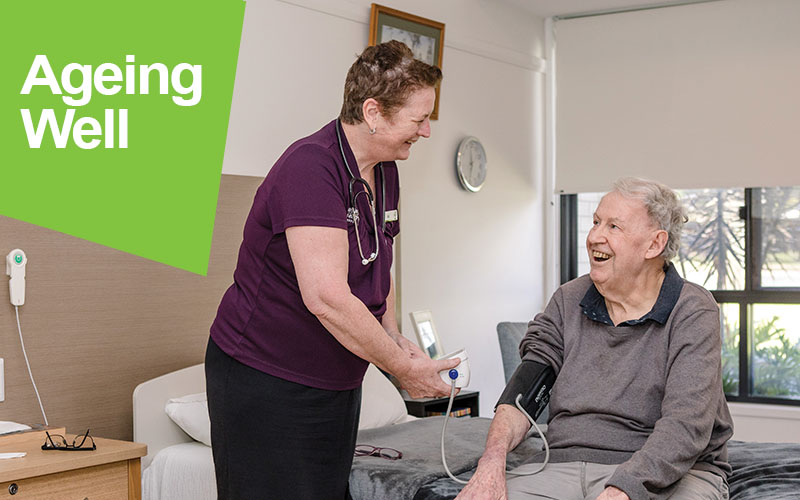Key signs that it might be time to consider residential aged care for your loved ones

Deciding when it might be time to consider residential aged care for your loved ones can be a complex and emotionally challenging process.
While the specific circumstances can vary from one family to another, read below some major signs to look for.
Need quick Aged Care answers?
Call 1800 448 448 and our friendly Aged Care Specialists will clarify any questions you have.
1. Safety Concerns (frequent falls or accidents at home)
If your loved ones are at an increased risk of falling and sustaining injuries due to mobility issues, frailty, or other health conditions, residential care can offer 24/7 trained staff, safety measures and appropriate facilities.
2. Neglect of personal and/or household hygiene
Observe if your loved ones appear unkempt, have trouble with grooming, or neglect their personal care. They might be wearing dirty, soiled, or mismatched clothing, or have an unpleasant or persistent body odour. Dirty dishes, disregard for laundry, or unsanitary conditions at home can also provide insights into their ability to manage daily tasks or a mental health condition.
3. Increased care needs
If physical or mental health care needs are increasing, and the home care package or family support no longer provides enough support at home, residential care can offer professional services as needed. Care may include dementia specific care, hygiene assistance, meal and mobility support and medication management.
4. Social isolation and loss of interest in hobbies
Loneliness can have a negative impact on seniors' mental and emotional well-being. If your loved ones are socially isolated at home, no longer meeting with friends or losing interest in lifelong hobbies, they may benefit from social interactions available in a residential care facility.
5. Cognitive decline (advanced dementia or Alzheimer's disease)
As cognitive function declines in conditions like dementia, residential aged care can support your loved one, allowing you to relax knowing they are safe and receiving the care they need.
6. Caregiver burnout
If you are experiencing physical, emotional, or mental burnout due to the demands of providing care, residential aged care can ensure that you and your loved ones are well-supported.
Remember, the signs you observe should be part of a larger assessment of your loved ones' overall health and care needs.
Seek guidance from healthcare professionals, geriatric specialists, and social workers to make an informed decision about residential aged care. This decision should be made in the best interests of your loved one’s health and well-being.
Your parents' wishes
We understand nobody wants to leave their home. Discussing everyone's preferences and concerns early helps them be involved in the aged care decision process if residential care is now required.
Ageing well with WMQ
Our compassionate approach is what makes us extra special!
Experienced aged care at home and in our facilities. Compassionate, respectful, and cherished moments for your loved ones.